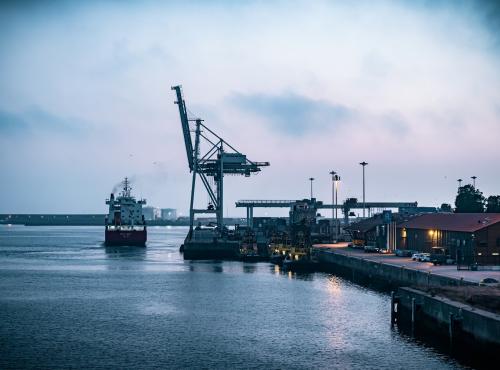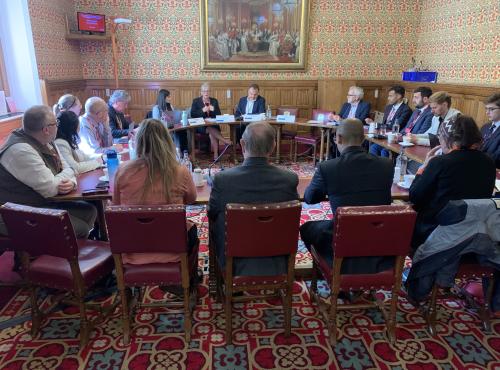Energy Security: Balancing Supply and Demand
On 21 February, Policy Connect, through its low carbon-energy forum Carbon Connect, held the third roundtable in its Energy Security series. The session focussed on balancing supply and demand in a future decarbonised energy system.
Unprecedentedly high wholesale energy prices and heightened energy security concerns have heightened scrutiny of the Government’s ability to achieve its net zero targets and deliver the ‘energy independent, secure, and resilient’ UK outlined in March 2023’s, ‘Powering Up Britain: Energy Security Plan’.
With the challenge of achieving a decarbonised and balanced power system by 2035 increasingly stark, participants gathered to express the need for a whole systems approach and a clear and stable regulatory framework that enables investor confidence.
According to guests and panellists, the transition from a system that is balanced by fossil fuels, to alternative low-carbon sources will require market reform, large scale investment in technology, long duration storage, and network infrastructure, along with upgrading skills capacity and supply chain resilience.
After an initial discussion on the UK’s halting progress towards achieving its net zero targets, attendees explored the challenges of balancing supply and demand in a future energy system.
In a system in which the bulk of the energy mix is renewable energy, challenges will arise related to costs, scale, seasonality and the long duration required to balance supply and demand.
There was wide consensus amongst participants that the Government should seek to overcome these challenges and drive the transition forward by investing in technologies, expanding long-duration energy storage, and accelerating the building of network infrastructure.
The lack of a strategic will from the Government to deliver long-term policy support, governance changes, and market reform were also identified as reducing the effectiveness of the energy system and deterring investors and members with assets on the decarbonisation pathway.
The need to bridge the skills gap was also discussed. A skilled workforce is essential to the energy transition and currently presents a massive gap to our net zero goals.
Chaired by Lord Teverson, the session featured contributions from:
- Tim Hare (DNV).
- Hannah Small (National ESO).
- Keith MacLean (Providence Policy).
For more information, please contact alainah.amer [at] policyconnect.org.uk.



